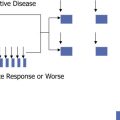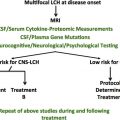Familial hemophagocytic lymphohistiocytosis (FHL) is a rare heritable disorder of immune regulation that is typically characterized by sudden onset of severe systemic illness. Functional impairment or absence of 1 or more of several proteins that participate in lymphocyte cytotoxicity underlies the disease. Although FHL usually presents in infancy, age of onset is variable and dependent on genetic and environmental factors. Initial treatment consists of immune suppression, whereas definitive treatment requires hematopoietic cell transplantation.
Key points
- •
Familial hemophagocytic lymphohistiocytosis (FHL) is a rare hyperinflammatory condition that is genetically heterogeneous. FHL is typically diagnosed in infancy but may present much later in life.
- •
Approximately 70% of individuals diagnosed with FHL have mutations identified in a hemophagocytic lymphohistiocytosis (HLH)–associated gene.
- •
FHL bears resemblance to secondary forms of HLH, including Epstein-Barr virus–associated HLH and macrophage activation syndrome. The approach to initial treatment is similar.
- •
Hematopoietic cell transplantation is necessary to cure FHL. Reduced-intensity conditioning before transplantation is associated with lower risk of toxicity and higher likelihood of survival.
Stay updated, free articles. Join our Telegram channel

Full access? Get Clinical Tree






